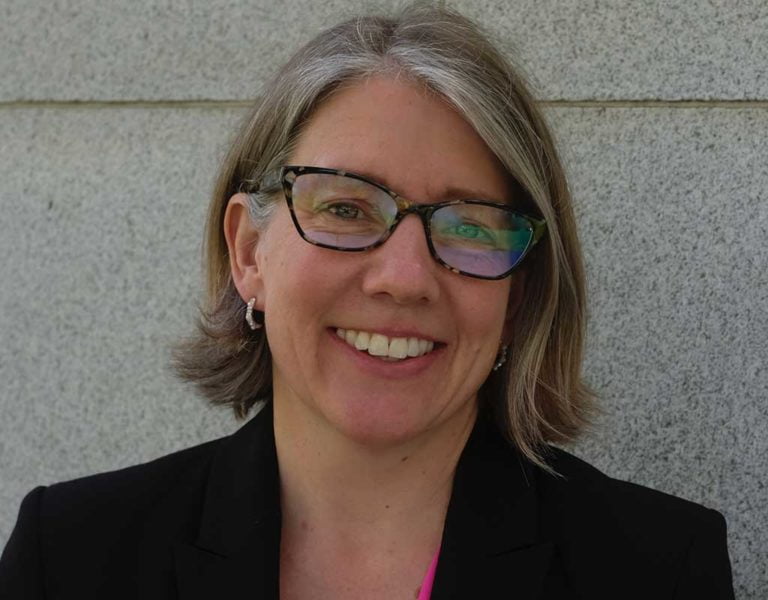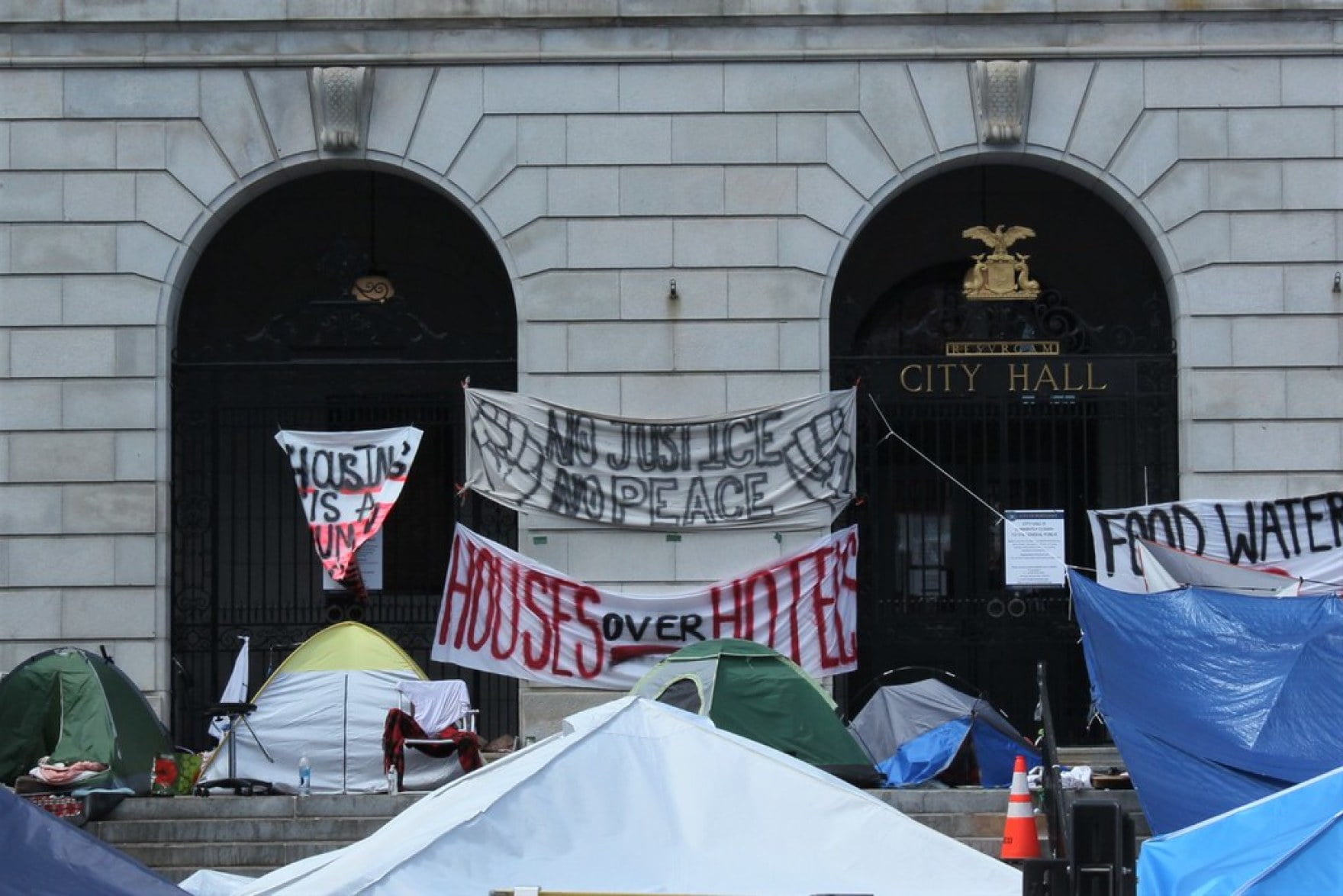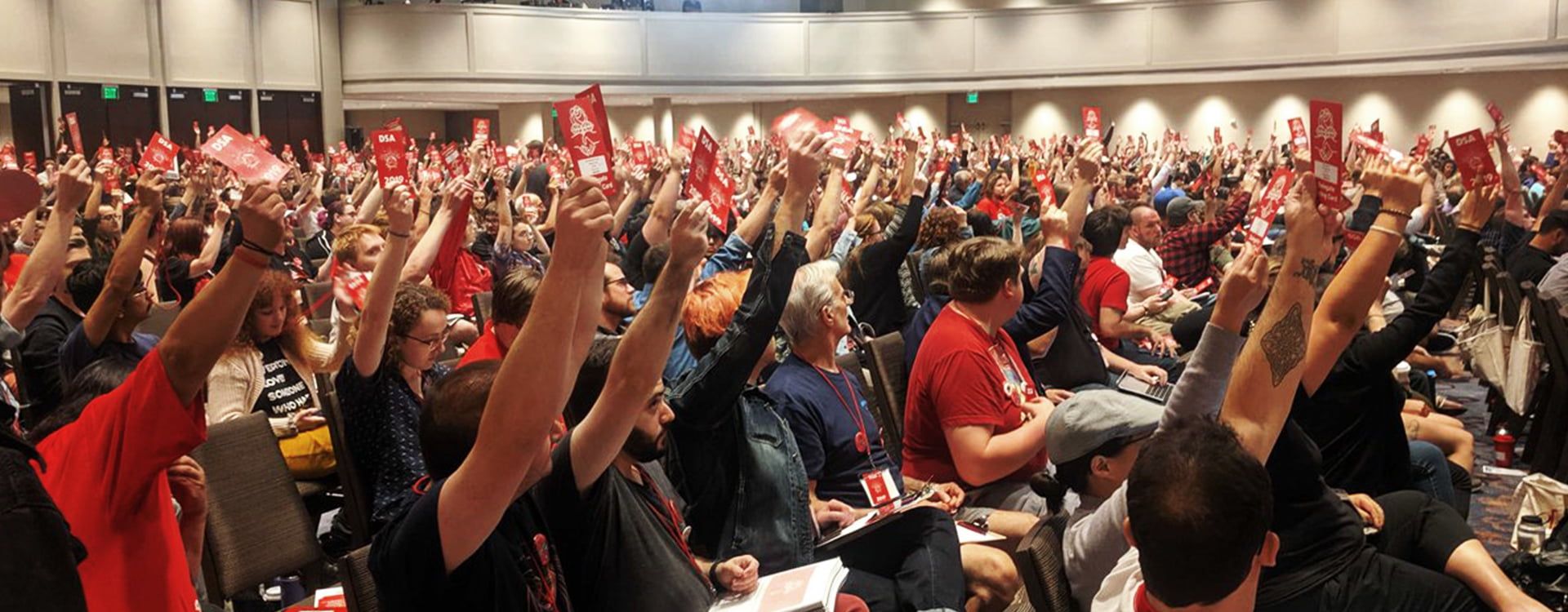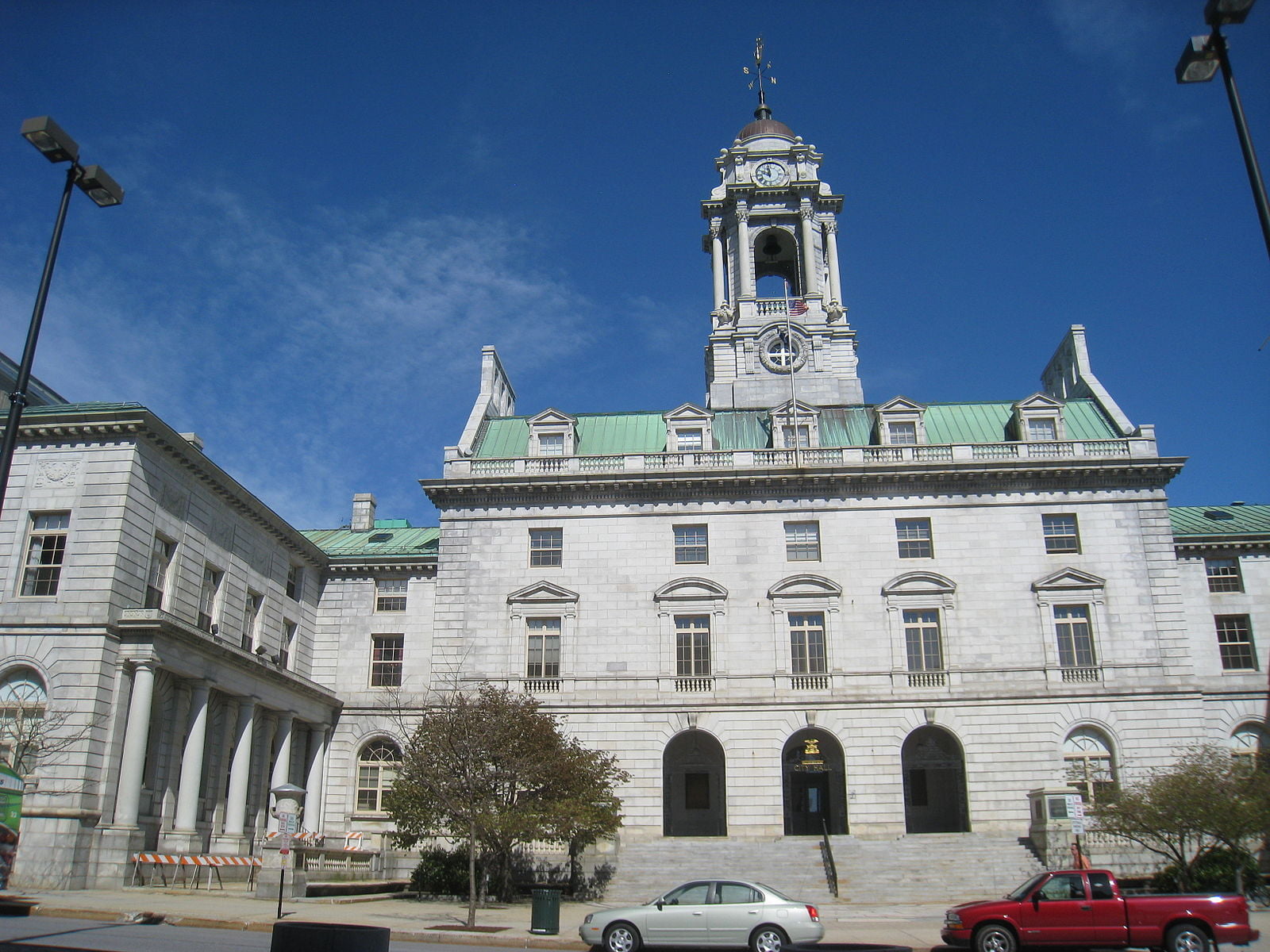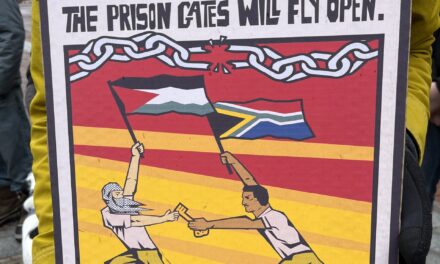Interview with Portland City Councilor Kate Sykes
Kate Sykes was elected to the Portland City Council last November representing District 5. She is the former co-chair of the Maine Democratic Socialists of America and was a key organizer in the victorious People First Portland city-wide ballot initiatives in 2020 that raised the minimum wage, strengthened renters’ rights, and mandated green building codes. She sat down with Pine and Roses’ Todd Chretien to talk about where she came from and where she sees the city going.
Chretien: You’re a Mainer, correct? Tell us a little about your roots.
Sykes: I grew up in a small town in Maine named Harrison, about an hour west of here. Both of my parents were public school teachers so I grew up with a really strong sense of public service. My dad also served in the legislature for several terms and was a town councilor in Harrison until just last year. So it’s in my blood. My childhood was seeing all the mills close and good working-class jobs disappear. I went off to college and pretty quickly realized I wasn’t going to find the type of opportunities in my home town I could elsewhere so I went off to the west coast and lived in Seattle for about fifteen years. I worked in the medical education field where I saw first hand—in an underserved family medicine program I worked in—the disparities in health outcomes among different populations, indigenous populations, migrant populations, inner-city populations. That really opened my eyes to the problems and to the need for Medicare for All.
Chretien: Let’s fast forward to 2015, 2016. There was a certain person running for president, there was a great awakening, everyone was looking at the election, and you came back to Maine…
Sykes: I was in Burlington, Vermont.
Chretien: Burlington! So said person might have been there as well. So what happened at that time that transformed you from someone who was aware of the issues into somebody who got right into the middle of organizing?
Sykes: It was Bernie. Absolutely. I actually saw him speak in a church in Burlington then. Didn’t know who he was at the time. I remember walking out of that church and turning to a woman who was about my age and saying, “Who is that guy? He’s amazing.” And she said, “Well, he’s Bernie and we love him.” [both laugh] That was the moment that I really understood that running for office, being in that legislative position could change the world. I moved back to Maine about a year later and got involved with DSA here. The chapter was just starting to grow rapidly, so that was a direct segue from Bernie’s campaign.
Chretien: If I remember correctly, in 2015, DSA had a membership of something like 10,000 people and by the end of 2017 it had cracked 60,000. So you weren’t alone! Tell me a bit about the formation of the Maine chapter at that time.
Sykes: The chapter at the time was a lot of labor organizers, older members in their sixties and seventies, including some members who were there at the organization’s foundation. It was great. I felt like I got a bunch of grandfathers all at once. Or uncles or something.
Chretien: I think we’re old enough to call them fathers! [both laugh]
Sykes: That was really fun for me because it was a bunch of young people, older people, people from different walks of life, for instance, a lot of people in health care were interested in Medicare for All. Workers from everywhere. It was an eclectic bunch. A hopeful bunch. A lot of defectors from the Democratic Party who were disenchanted with the politics of that moment. We didn’t even have a meeting space for a while and then we were able to get a meeting space in City Hall. That was quite an experience to be able to meet in the State of Maine room on a monthly basis. You know, that old, regal looking place. It made you kind of feel like you were part of the government. That was really inspiring. I think it was a genius move, I think it was Barney McClelland’s idea to meet there.
Chretien: At the same time as feeling like part of the government, we had a problem, Trump was running the country! And we definitely didn’t want to be a part of that government! It was a very defensive period, but it ended spectacularly with the pandemic. And with the upsurge against Trump, DSA locally decided to leverage that huge anger against Trump. What did DSA do? And how did those actions transition to a political strategy for the 2020 election?
Sykes: In the very first weeks of the pandemic, DSA organized a mutual aid brigaid. We organized direct aid, on-the-street outreach to people. We were giving people gift cards to Hannaford, cash, anything they needed. I remember picking up a bunch of cleaning supplies, anything to help people survive because there wasn’t any aid, people just lost their jobs, they were terrified.
Chretien: Just to say, it’s almost impossible to remember, even though it was only a few years ago, but unemployment went to 20 percent within six weeks.
Sykes: Right. That was underscored for me because I was doing a lot of mutual aid work in Sagamore Village which was the same place I was canvassing for Bernie so I was talking with some of the same people. They recognized me too. That felt good to connect those two things so people would understand that this is what socialism means. This is how we operate.
Chretien: The pandemic provoked a crisis in the Trump administration—and eventually cost him the election—but rather than just being spectators, what did DSA do locally?
Sykes: It was terrible that Trump was in office, but everyone was up in arms. We knew we would have a massive turnout of progressive, anti-Trump voters here in Portland. So we thought about strategically running a slate of ballot initiatives. We had discussed one-off ballot initiatives before, but running a slate of them could produce exponential gains. At the Maine DSA convention that year, we got together and brainstormed a bunch of things and then took those to a committee session and whittled those down to five. We decided to call the whole campaign People First Portland. We then formed individual committees to deal with each of the ballot initiatives, including ordinance language, hiring a lawyer, talking to experts in the field. In particular, we had to talk to a lot of experts about solar power and fossil fuel bans, and developers, for the Green New Deal building code initiative. Former Portland Mayor Ethan Strimling was really helpful in the logistics of all this, he understood how to write legislation, he’d been in the legislature in Augusta. He knew everyone.
Chretien: Probably the best known initiatives outside of Portland was raising the minimum wage and renter’s rights. Can you describe the wage increase and explain the renters’ protection measures? And, has there been any opposition to those reforms? [both laugh]
Sykes: It was the Fight for Fifteen at the time, which now sounds so silly because it really should be the Fight for Twenty-five. The idea was to raise the wage to $15 and to include an evergreen clause in it so that it would never fall behind again. The opposition was called…I don’t remember…. “We Can’t Drive Fifty-five,” or whatever it was.
Chretien: With the clause for time-and-a-half pay for essential workers during any state of emergency declaration, the wage could get as high as $22 per hour, so I think it was “We Can’t Do Twenty-Two!” [both laugh]
Sykes: Yes, right. That was the Chamber’s work. We had a ton of opposition from them and, of course, the Southern Maine Landlord Association opposed rent control. We’ve had challenges at the ballot box a couple times over the years, but we’ve been able to fight them back. Those two ordinances are solid. I think Portland likes its rent control.
Chretien: Absolutely. In the midst of all that, I had forgotten that you ran for District 5 in 2020 and narrowly lost. But, as I understand it, you didn’t have a concrete plan to run again in 2024. What led you to jump in?
Sykes: I had done some work on the Portland Charter Commission in 2021-2022, including helping elect some of the commissioners and some policy work, so I followed it all really closely. I have so much admiration for Commission Chair Michael Kebede, and the way he was able to bring people together around those issues and shepard the Commission through a lot of really tough work. And I happened to see him out at an event and our talk turned to the upcoming election and he asked if I was going to run again. I honestly hadn’t given it much thought but in that moment, I realized I had it in me. I thought, “Gosh, Michael Kebede just asked me if I was going to run, and I think I’m going to run!”
Chretien: Your campaign was just one of the things happening in 2023. Unfortunately, we lost Maine Public Power because CMP outspent the campaign twenty to one. But your campaign succeeded. Can you explain the most important elements that went into your victory?
Sykes: First was Clean Elections funding. That gave me the resources I needed to run. Second, I used those resources to hire an agency to help me run, Movement Building Maine. It’s patterned off the Rhode Island Political Coop. They only work with progressives, they have a platform you have to sign on to; you can be to the left of that platform but not to the right. They provided resources I didn’t have the first time and couldn’t have mustered the second time without them. Things like trying to calculate how many votes you’re going to need to win, calling volunteers to show up for events, how many doors do you need to knock to get to your win number. Just having someone to check in once a week to ask how doors went, or to point out that I didn’t do as many as I’d done the week before and tell me to step it up!
Chretien: Speaking of doors. How many doors did you knock on?
Sykes: A lot! I honestly can’t remember.
Chretien: It was more than twenty. [both laugh] More than a thousand?
Sykes: I was out every day from 2 or 3 in the afternoon until after dark. Every day for four months.
Chretien: So a lot of elbow grease!
Sykes: Yes. I bought myself a new pair of sneakers afterwards.
Chretien: Some people say that when you run for election, you have to run to the center. You have to run away from your background. You have to be moderate, cut out your leftwing allies because they will embarrass you. What was your experience running as a socialist?
Sykes: There’s a lot of great tips on a website called LocalProgress.org about messaging. It talks about raising socialist issues but not using the word socialism. Being able to meet working class people where they’re at — like the cost of health care, the lack of childcare, the fact that wages haven’t kept up. Just being able to have economically informed conversations with people the way that Bernie did. It goes right back to that. To be able to talk to people about their economic woes as a family. A lot of people do want to talk about big national issues but there’s enough going on right here in Portland. You don’t have to start with Trump. You don’t have to start with the buzzwords that immediately make people slam the door in your face or want to hug you.
Chretien: Now that you’re into your second month as a city councilor, can you give us something that you think Portland is doing well?
Sykes: Well, even though I was one of its biggest critics, I think our Homeless Services Center is doing an incredible job. I was really against the sweeps that happened throughout the summer and into the fall and winter and I still think that’s a really violent way to go about convincing people that you have a great homeless shelter. But now that the services are starting to ramp up and the HSC is starting to improve, I think we’re knocking it out of the park. It’s in my district, and that makes me really happy. We have a great team of staff running the shelter and a lot of community partners who care. People in Portland really care about social issues. And it’s the government doing this, right? That’s as socialist as it gets. It’s us doing it. It’s not a non-profit. It’s the City.
Chretien: At the same time, everyone admits that we’re facing a severe housing shortage, not just in Portland, but in all of Maine. I think Gov. Mills’ new report says that the state needs around 80,000 new housing units. If I remember, we built 400 last year.
Sykes: Social Housing is the program I think we need to launch here. It’s a form of public housing that is mixed income, permanently affordable, developed and maintained by the public. True public housing is something we haven’t had in this country since Eisenhower. Many don’t understand what it is but it’s starting to enter the consciousness again and it’s starting to work in places that are adopting it. I think social housing is the missing leg of what should be a stable, three-legged stool. Right now we have market-built housing, we have the Low Income Housing Tax Credit (LIHTC) program that’s usually built by non-profits, like Community Housing of Maine and AVESTA. The third thing we need is public housing. And if we have that, I believe we can meet the goal of 9,000 units in Portland, but without it, our housing stock will continue to age, and we’ll never catch up. I’m advocating for a municipal social housing developer to be stood up here in Portland. We have to do a lot of education because when people hear “public housing” they think of low-income, racially-segregated housing. They think of how public housing was a failure for so long. But if you look at social housing in other places, for instance in Vienna, it’s mixed income, it’s beautiful, people are proud to live there, and it’s working-class housing. We can do that here in Portland.
Chretien: Last question. How do you keep your eye on the ball of critical priorities like social housing while the world is burning down around us? You supported the city council resolution calling for a ceasefire in Gaza, for example. How do you understand your role as a local elected official?
Sykes: As socialists, we understand that it’s all connected, right? National problems need to be addressed locally, and international problems are our problems, too. Cities have always been the crucible of Socialist reforms. The urban programs that socialists put forward in the 19th and 20th centuries for better working conditions, clean drinking water, better lives for working class people, they all look remarkably similar, from North America to Europe and around the globe. That’s not a coincidence. Ours is and always has been an international movement, and Socialists can walk and chew gum.
